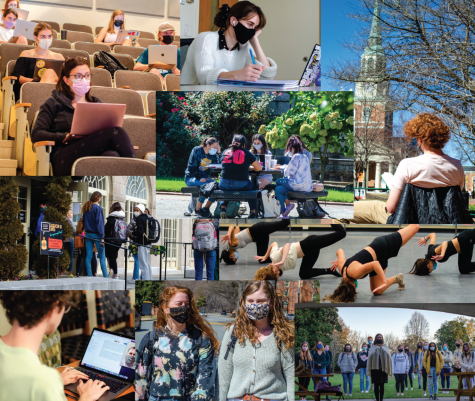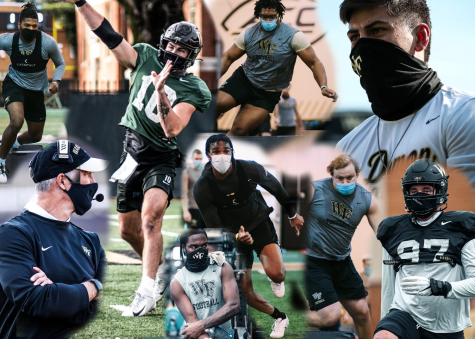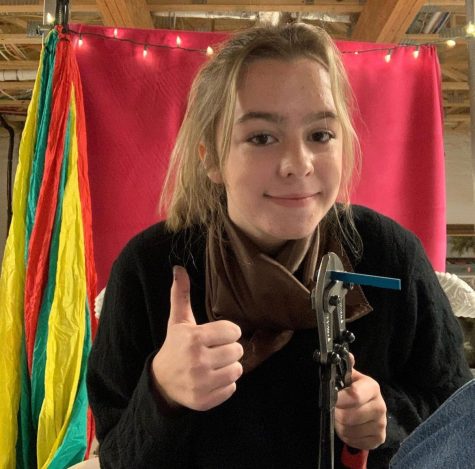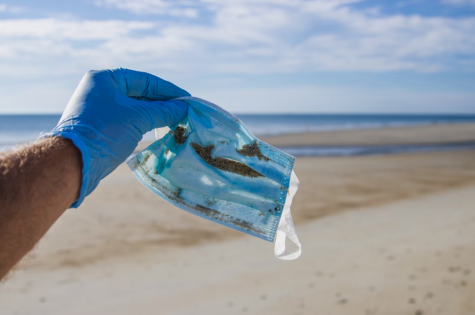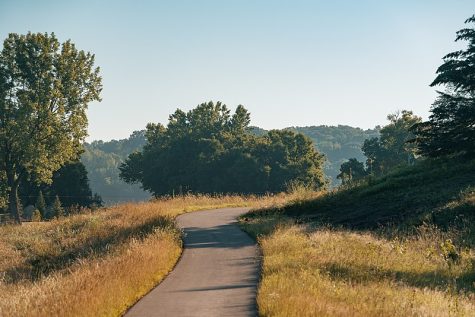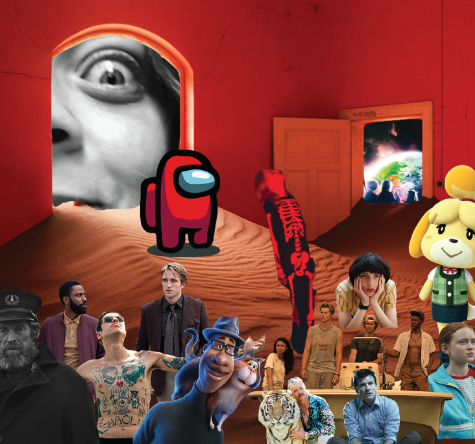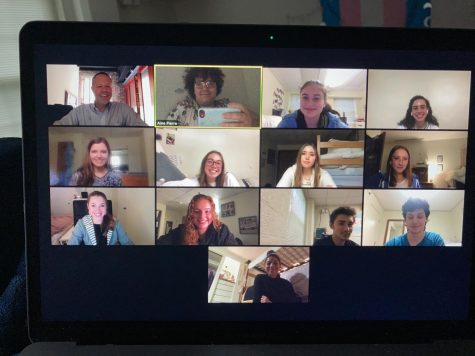COVID prepared us for climate change
How our sacrifice in one global crisis can provide a precedent for others
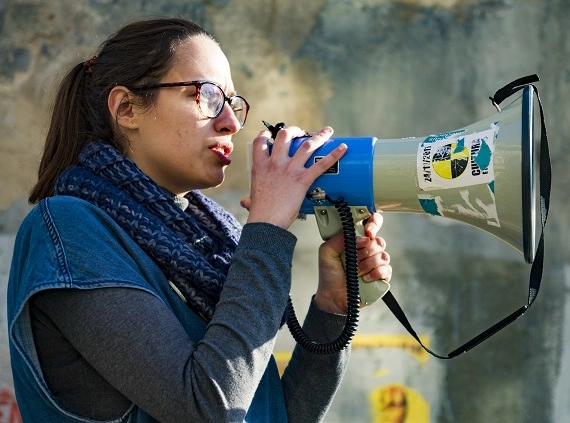
A protestor speaks into a megaphone.
March 16, 2023
In March 2020, reality shifted. The coronavirus upended life, derailed normalcy and sent us into lockdown.
Schools closed. Work was conducted from home, when and if possible. Things like traveling, eating at restaurants and spending time with friends became luxuries of a distant past. The economy lagged as consumption dropped. We cloaked our smiles with masks, wedged a six-foot radius between us and dubbed this era of irregularity as the “new normal.”
And the underlying motif to the “new normal” was sacrifice.
If you were a high school senior like me in 2020, maybe you had to sacrifice your graduation. If you were already in college, maybe you sacrificed your opportunity to study abroad. Maybe you sacrificed in-person classes, time on campus or other aspects of the normal college experience.
Sacrifices were commonplace. Amidst surging numbers of confirmed COVID cases, we all sacrificed something in lockdown.
But we didn’t do it without good reason. Individual sacrifices were a small price to pay for collective wellbeing.
During the pandemic, we learned to be selfless for our communities. We protected those most vulnerable to the virus. We embraced a new normal.
Now, nearly three years since the start of lockdown, we can reflect on this selflessness with the comfort of hindsight. In the wake of the pandemic, we can admire the ways in which our world drastically changed to adjust for a crisis.
We worked together to beat one global crisis. Now we face another — climate change.
As global temperatures creep past pre-industrial levels, we must continually foster our communities’ capacity to change. In a warming world, life as we know it will again be upended.
We’ll have to change the ways in which we commute to school and work, and we’ll have to change the ways we used to travel as we wean ourselves from a global dependency on fossil fuels. We’ll have to change our diets to account for agriculturally driven deforestation, conversion of ecosystems and land degradation. And we’ll have to reevaluate our culture’s attitudes towards consumption as we reconcile with the consequences of exploiting entire ecosystems.
Sound familiar?
Once again, individual sacrifice will constitute collective wellbeing, this time of both people and the planet.
It’s important to note that sacrifices will of course look different for climate change than they did for the pandemic, but at least this time we have a precedent for the necessary cultural and societal shifts required to adequately address the climate crisis.
And where we once had to distance ourselves from our communities, this time we must embrace them. A recent study explored the influence of our peers on environmental behavior; people are most likely to engage in sustainable behaviors if their neighbors do, as well. Altering the course of climate change will require collective community action. By embracing the role we play as members of a larger community, we can better support sustainable changes on a community scale.
As we adapt to climate change, we’ll need to be selfless again for our communities. We’ll need to protect those most vulnerable — racial and ethnic minority communities who have been historically marginalized.
We’ll need to, once again, embrace a new normal.
The climate crisis will require drastic change on a condensed timeline. But it’s nothing we haven’t done before. Our new normal will be a better one — one with environmental justice, racial and gender equity, clean water, sustainable cities and affordable and clean energy. The human world and the natural world will coexist as a symbiotic state. Ecosystems and the species that inhabit them will be protected.
Through community, collaboration and sacrifice, we’ve prevailed once in the face of a global crisis. We can do it again.












